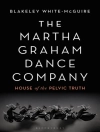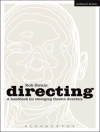Intelligence Work establishes a new genealogy of American social documentary, proposing a fresh critical approach to the aesthetic and political issues of nonfiction cinema and media. Jonathan Kahana argues that the use of documentary film by intellectuals, activists, government agencies, and community groups constitutes a national-public form of culture, one that challenges traditional oppositions between official and vernacular speech, between high art and popular culture, and between academic knowledge and common sense. Placing iconic images and the work of celebrated filmmakers next to overlooked and rediscovered productions, Kahana demonstrates how documentary collects and delivers the evidence of the American experience to the public sphere, where it lends force to political movements and gives substance to the social imaginary.
قائمة المحتويات
List of Illustrations
Acknowledgments
Introduction. The Intelligence Work of Documentary: Publics, Politics, Intellectuals
Part I. The Sentiment of Trust: The Documentary Front and the New Deal
1. National Fabric: Authorship, Textuality, and the Documentary Front
2. Voice-Over, Allegory, and the Pastoral in New Deal Documentary
Part II. Lyrical Tirades: New Documentary and the New Left
3. Revolutionary Sounds: Listening to Radical Documentary
4. Documentary Counterpublics: Filming Prison
Part III. The Public Sphere of Suspicion: Documentary in the New Obscurity
5. The Vision Thing: Documentary, Television, and the Accidental Power of the President
6. Tense Times: Documentary Aporias; Or, the Public Sphere of Suspicion
Notes
Filmography
Index
عن المؤلف
Jonathan Kahana is assistant professor of cinema studies at Tisch School of the Arts at New York University.












